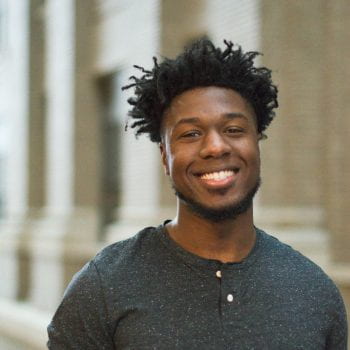Kwasi E., M1

For me, the journey of applying to medical school happened throughout 24 countries on an international a cappella world tour. In between writing apps 36,000 feet in the air, eating street food on the ground, and blowing out my voice in concert halls, I started thinking about what would really matter to me forty years down the line when I looked back at my choice of medical school. I actually had not even considered WashU until one of my fellow singing friends from Yale, now an M3, told me if I truly wanted to be in a warm, friendly environment for medical school, I should apply. My East Coast-born and raised mind said, “Yeah … we’ll see.”
Six months later, I missed my flight to St. Louis, arrived on campus about 30 minutes before my first interview, changed rapidly in the FLTC atrium’s bathroom, and was welcomed by smiles across the admission’s staff faces when I told them about my blunder. Then, I spent two hours talking to physicians about my dreams in medicine, how I wanted to play a role in changing patients’ ability to access and pay for health care across the country, and about my favorite destinations for food across the world. And they listened. And laughed. And challenged my thoughts along the way.
Maybe that was why I thought WashU felt like home? Maybe it was the gourmet lunch of tacos, enchiladas, tostones, and more on interview day? Maybe it was the glee I felt when this top medical school gave me a financial aid package that blew my other offers out of the water? I am not sure how to put my finger on it, but I knew WashU genuinely cared, and I took a leap in accepting their offer. They cared to give us the torturous history of WashU and St. Louis over orientation. My professors, who challenge our nation’s government on how to prevent gun violence or make health care affordable, care to spend time with me in school, in their offices, and in their homes. My classmates give each other caring looks when we inevitably fumble over clinical vocabulary and drop tools in Anatomy lab, acknowledging that we’re witnessing the humble beginnings of future leaders in medicine. I think it’s that feeling of faith that we are going to make great strides in providing, transforming, and teaching care, which made me realize “Why WashU” is home.